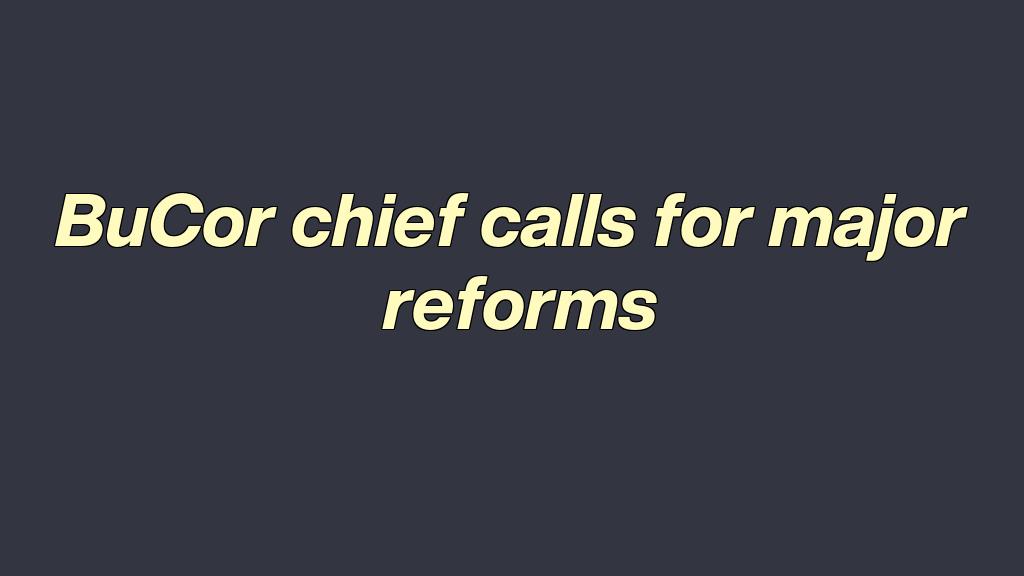THE Bureau of Corrections (BuCor) is pushing for legislation to reform the country’s penal system, including the creation of a unified corrections department and a law granting medical parole for elderly and ailing inmates.
BuCor Director General Gregorio Catapang Jr. outlined the proposals, which he described as a significant shift in the management of the nation’s prisons.
At the center of the agenda is the establishment of a “unified penology and correctional system,” which would consolidate all jail and prison management under a single department, replacing the current fragmented structure.
BuCor is also advocating for a medical parole law, allowing for the compassionate release of persons deprived of liberty (PDLs) who are 70 years or older, or who suffer from severe illnesses, so they can be cared for by their families., This news data comes from:http://xs888999.com
Another key proposal is the creation of a “Corrections and Land Development Authority” to manage and develop BuCor’s extensive land assets — referred to by Catapang as “sleeping giants” — to generate funds for modernization and operational needs.
“These efforts are part of BuCor’s broader mission to become a relevant, sustainable, and respected institution,” Catapang said.
BuCor chief calls for major reforms
He added that Justice Secretary Jesus Crispin Remulla and Interior Secretary Jonvic Remulla have a “verbal agreement” to begin transferring control to a unified system.
Since June 2022, BuCor has overseen the release of over 22,000 PDLs, surpassing previous administrations’ accomplishments, Catapang said. He attributed this milestone to improved coordination among the Supreme Court, the executive, and legislative branches, which ensured the proper application of the Good Conduct Time Allowance (GCTA) — a mechanism that can significantly reduce sentences.
A primary aim of the releases is to decongest prisons. Congestion at the New Bilibid Prison (NBP) in Muntinlupa City has dropped from 313 percent in 2020 to 224 percent today.
The NBP inmate population has been reduced from 23,000 to 22,000 through releases and transfers to other penal colonies.
To further ease overcrowding, BuCor is relocating PDLs to its penal farms, including the 29,000-hectare Iwahig Penal Colony and an 8,000-hectare facility in Mindoro.
Catapang revealed plans to close down the NBP by 2028.
He noted that BuCor’s budget has doubled from P5 billion to P10 billion since he assumed office, but acknowledged it is still not enough.
To fill the gap, the agency has Joint Venture Agreements with private entities to build new dormitories, with ongoing projects in Iwahig, Sablayan, Davao, and Leyte.

Catapang also wants to make BuCor self-sustaining by developing its vast land assets, including the 367-hectare NBP property, which could be converted into a commercial zone.
Plans also include establishing special economic zones within penal colonies where inmates can work.
Rehabilitation remains a focus, with programs including drug treatment, education, food subsidies, and post-release employment, supported through partnerships with private companies such as San Miguel Corporation.
- Marcos to youth: Help in nation-building
- Chinese tourist city Sanya shuts down as typhoon intensifies
- An AI simulation of a Mount Fuji eruption is being used to prepare Tokyo for the worst
- Can a giant seawall save Indonesia's disappearing coast?
- Police brutality fuels soaring tensions in Indonesia
- Duterte lawyers take aim at ICC prosecutor
- North Korea's Kim in China ahead of massive military parade
- Lacson: Senators not exempt from scrutiny in ghost flood control project scandal
- Philippines presses call for ceasefire in Gaza
- Trump moves to end US tariff exemption for small packages